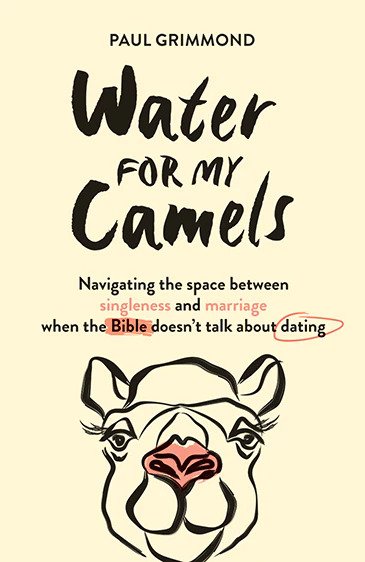Exhilarating for some, but crushing many in disappointment and despair.
A couple of recent conversations with single 20-somethings alerted me to the confusion and pain many Christians experience around romance, dating and marriage.
Into this space Paul Grimmond has dared to venture. It is a fraught space—emotionally fraught for many of his intended audience (single Christians trying to navigate a journey that could include marriage), and also fraught in Christian subcultures where dating, courtship, sex, and gender have become heated topics.
I still remember when Josh Harris’ I Kissed Dating Goodbye hit the shelves in the 1990s. The issue became so divisive that Thomas Umstattd could write Courtship in Crisis in 2015.
The thing that struck me was their grand claims of being “biblical”—“biblical dating,” “ciblical courting,” “biblical proposing.”
They agreed that modern (western) dating was problematic, with “sex on the first date” causing consternation and fear for anyone seeking to live lives that honour the Lord Jesus. But the wildly divergent solutions were a little disconcerting, especially when all sides claimed to be “biblical.” In reality the books tended to cherry pick stories from the Bible that supported their view, then told lots of anecdotes from their own experience to glamorise their view and demonise alternatives. This is poor use of the Bible, and is too easily blindsided by the cultural water we swim in.
Water for My Camels takes a different, and much better path. Grimmond acknowledges that the Bible says very little about navigating the space between singleness and marriage in any prescriptive way. And he acknowledges that our cultural setting will influence how we navigate that space, much of it negative because of divergent worldviews, goals and commitments. But some of the influence is not ungodly—and is a given that we can’t escape.

Water for My Camels
Paul Grimmond
The Bible has some fascinating stories of how two people meet and marry—like the Genesis story of Isaac, Rebekah and their thirsty camels. But you’ll search in vain for Bible stories that resemble the modern-day custom we call ‘dating’, or for explicit teaching from Jesus or his apostles on the topic. So how do we navigate the modern road from singleness to marriage, which is paved with potential pitfalls, temptations and hurts—unhelpfully influenced as we are by our culture’s godless view of dating and sex?
In Water for My Camels, Paul Grimmond takes us on a deep dive into the Bible’s teaching about marriage and singleness, showing how it shapes our approach to dating.
Grimmond’s approach is what I hope would be normal good practice amongst Bible-honouring Christian teachers. After setting the scene, he:
- Summarises the biblical teaching on the topic.
- Describes the cultural context that influences our thinking and practice.
- Suggests implications of the biblical principles, given the cultural context. This is a healthy mixture of “we ought” and “this seems wise, but the Bible does not give binding instruction.”
- Anticipates and answers many questions with a fairly comprehensive FAQs section.
As you can see, it is a succinct book, which does not seek to engage the wider Christian debates, but to address the real concerns of people wanting real help in navigating dating and marriage.
The Bible says very little about navigating the space between singleness and marriage in any prescriptive way.
Does Grimmond do a good job for such people? As someone involved in ministry to university students (the target age bracket), I find that conversations about relationships come up pretty much every week, so I have some inkling of what could help them. I am confident that I could give young adults Water for My Camels and say, “Go and read, then let’s talk.”
My confidence comes from what I have described above, and a few other things:
- A shared theological framework, including in the area of how God guides his children.
- Trustworthy reading and application of the Bible – so I agree with his conclusions and am assured it won’t lead people to misread the Bible.
- The cultural analysis is generally right, even though culture is multifaceted and moves fast. My students will recognise his description, even if it derives from screen time more than personal experience.
- The connections drawn between biblical teaching and wise counsel seem to me to be pretty compelling.
- The tone is sympathetic and warm—he is not fear-mongering lest sexual temptation gets a look-in, but directs his readers to the grace of God for sinners and the beauty of God’s design for sex.
- He encourages a “Define The Relationship” conversation early on, despite the awkwardness and risk.
- He talks openly about sex without encouraging unhelpful imagination and voyeurism.
So, yes, it is a book I will regularly put in the hands of young people.
Is it the perfect book? No, but it is better than I could write—apart from the title, which I found a bit too obscure, unless young people want to hide the fact they are reading a book about dating. I guess they can brush off the awkwardness that surrounds the whole dating game amongst Christians by waving the book around and describing it as Jane Austen meets Dune. Even so, it is a book I will be putting into their hands.















